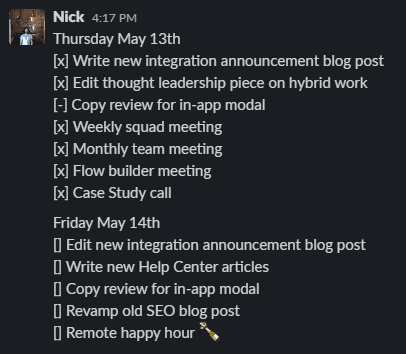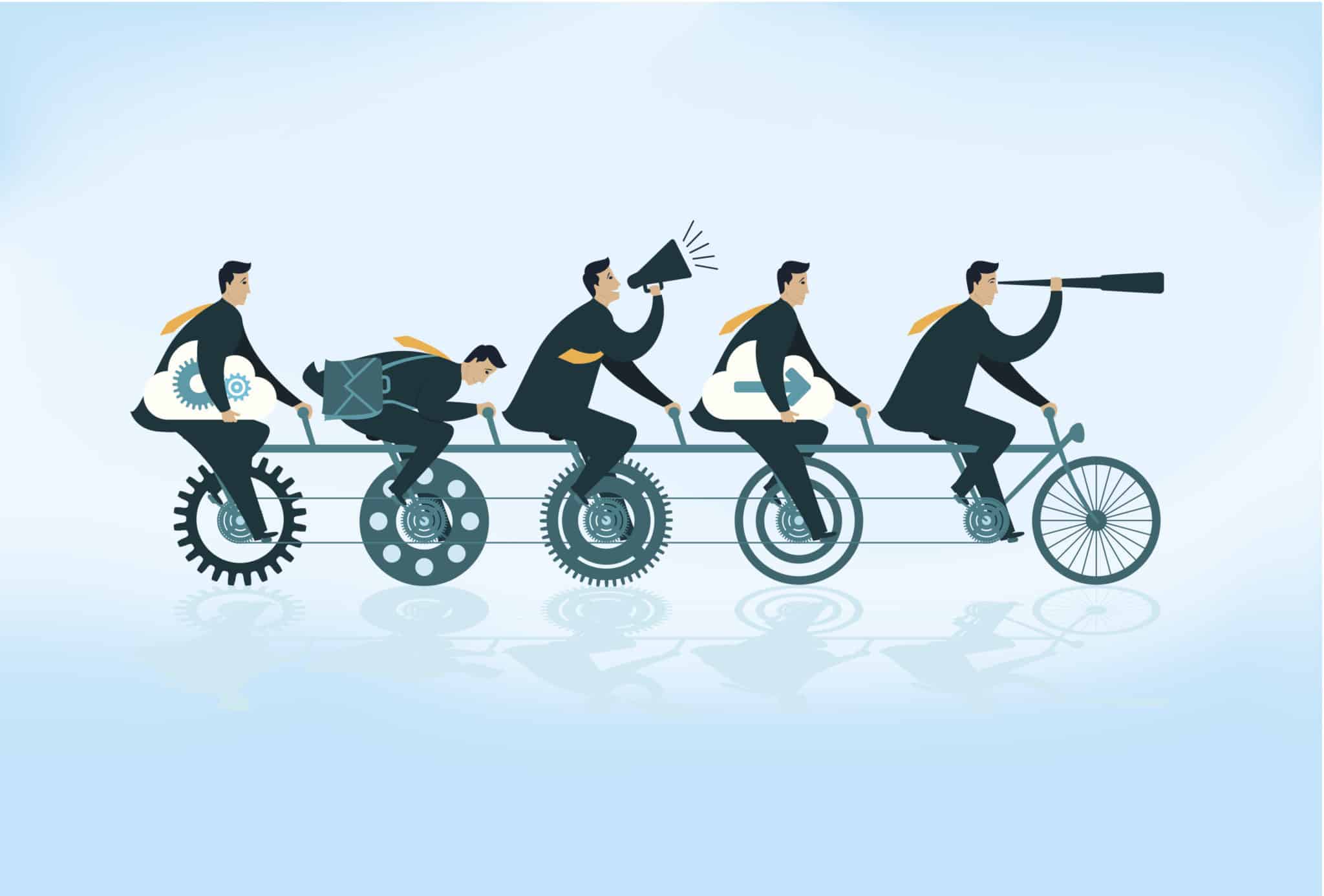7 Teamwork Tips To Turn Any Team Into an All-star Lineup
A team is only as good as how cohesively it works together. To ensure that your team operates efficiently, it needs to feel great about itself & be motivated to do their absolute best work yet. There are countless methods that companies implement in order to make their teams better, but here are some of the best teamwork tips to keep everyone rowing in the same direction.
Tip #1: ease up on the micromanagement
We’re not saying you’re micromanaging your team, but it’s unfortunately all too common. With the widespread use of project management tools and chat platforms, regular check-ins can too often become excessive. Micromanagement isn’t just annoying for your team, it can negatively affect their performance. So stay on the lookout for these signs of micromanagement:
- Every task needs approval.
- Every email needs to CC a manager.
- Managers know where everyone is at all times.
- Managers get too much joy out of editing their team’s work.
- Managers struggle to delegate.
- Managers keep sweating the small stuff.
Tip #2: sync your tools
Knowledge workers use a host of software tools to get the job done. But whether you’re managing a cross-functional team or a more traditional department, you might be susprised by just how many they’re using. Worse, these tools often don’t work together. That’s why managers need to be on a constant lookout for ways to bridge the gap between these tools.
With a tool like Unito, you can use deep, two-way integrations to sync data between multiple tools, such as HubSpot and Google Sheets, and keep everyone in the loop. Marketers, developers, customer support agents, and people from all sorts of roles can collaborate on complex workflows without having to hop from tool to tool. Here’s why that’s so important for managers.
Teamwork tip #3: keep salaries transparent
A team will work better together in an environment that promotes trust and transparency. That should be represented in the work they’re doing and the way they collaborate, but should also manifest in how leadership operates. One of the ways that transparency is promoted at Unito is through salaries.
At Unito, everyone working in a specific role with the same senority level makes the exact same salary. This has many advantages — from closing the gender pay gap to facilitating career growth — and one of them is improving teamwork. When there aren’t any secrets around salaries, teams trust each other more. They’re more motivated, and there’s no pettiness or conflict around raises.
Teamwork tip #4: make your meetings as effective as you can
Many expected the shift to remote and hybrid work to eliminate all meetings from their schedule. Not only did meetings not go away, but some saw their calendars suddenly fill up completely. Meetings aren’t going away, and if you don’t want them to be a total drain on your team’s resources, they need to be more efficient and more effective.
There’s more than one way you can do this. Make sure every meeting has a defined agenda. Test video and audio technology beforehand so remote workers aren’t left out of the loop. Discuss the purpose of recurring meetings occasionally. Basically, avoid sticking to the status quo, and ruthlessly improve every meeting.
Teamwork tip #5: master conflict resolution
As much as every manager would like for everyone on their team to get along all the time, but that’s just not going to happen. Conflicts can pop up even between the best work buddies, and it shouldn’t be all on them to fix it. The hands-off approach might be more appealing, but it’s not going to be as successful as a defined process.
Whatever your conflict resolution process looks like, from a few one-on-ones to paperwork and extensive reivews, make sure it reflects these essential characteristics:
- Assertiveness: When you’re managing conflict between teammembers, you need to be assertive. Work with each party to find a solution and make it happen. No doubling-back, no wishy-washy statements.
- Empathy: Assertiveness doesn’t mean ignoring the problem. To get to the source of a disagreement, you need the ability to understand where each party is coming from.
- Accurate communication: Conflict often arises from miscommunication, and further miscommunication can only make things worse.
- Active listening: Communication is one thing, but you also to filter through the many messages you’ll get from both parties and find the most important piece of information.
- Mediation: At the end of the day, resolving conflict is about finding a solution both parties find acceptable.
- Emotional intelligence: Emotions can run high during workplace conflict, and any conflict resolution process needs to take that into account.
Teamwork tip #6: use an asynchronous daily scrum
Software development and product teams often use the daily scrum to quickly communicate what everyone is working on and find opporunities for collaboration. In its traditional format, the daily scrum is a short meeting where everyone shares what they worked on the day before, what they’re working on today, and where they’re feeling stuck. Although it’s mostly used in the software development world, all teams can benefit from this regular meeting, especially if they make it asynchronous.
How? By using your organization’s chat tool. Here’s what that looks like:

With a dedicated channel for these updates, anyone can quickly see what their team is up to (and where they need help).
Teamwork tip #7: run regular retrospectives
Do you know how well your team works together? Do you have a path to helping them collaborate even more effectively? If the answer to either of these questions is no, then you probably need to run a retrospective. A retrospective is meeting during which a team looks back on the work they’ve done — usually every quarter or after a big project — and point out what went well, what didn’t, and how the team can improve. They’re easy to run, pretty short, and can have huge impacts on your team’s performance. Here’s how you can run your own:
- Start with an icebreaker to get everyone warmed up.
- Review past work and how well it went.
- Ask each participant where the team faltered, where it did well, and how it can do even better.
- Discuss the team’s findings and vote on the most relevant ones.
- Draft an action plan.
- Get feedback.
Teamwork for all
No one can do it alone, but simply bringing people together isn’t enough to achieve your goals. Making a dedicated effort to improve teamwork is the only way to take your team from lackluster group to top-performers.


